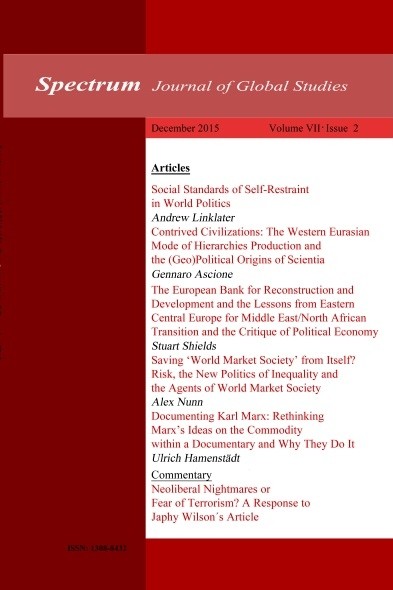Class Structure of International Law
Class Structure of International Law
International law, Pashukanis, Commodity Form Theory, Marxism Ideology,
- ISSN: 1308-8432
- Başlangıç: 2009
- Yayıncı: Dış Politika ve Uluslararası İlişkiler Derneği
Greek and Greek-Cypriot Political Strategies up to the Declaration of Independence (1945-60)
John MİLİOS, Tasos KYPRİANİDİS
Interview with Professor Hüseyin Bağcı on Turkish Foreign Policy
Michalis Stavrou Michael, Resolving the Cyprus Conflict: Negotiating History
Class Structure of International Law
Is there a Distinctive Mediterranean Entrepreneurial Collective Action?
Memory and Place in Divided Nicosia
What Are Imperial Systems: The Case of Cyprus c.1500 BC – 1960 AD
